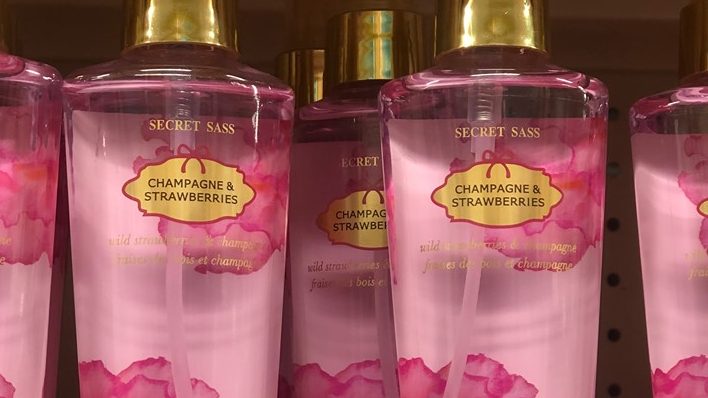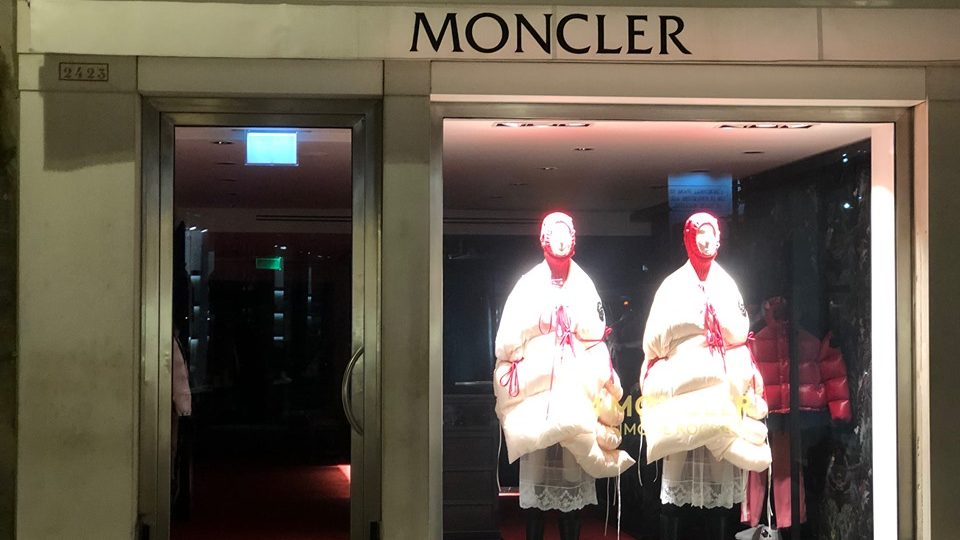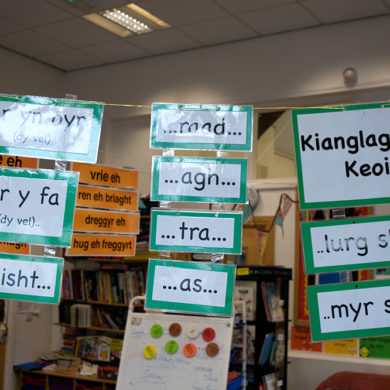With Britain on the verge of Brexit, what does the future hold for the people behind the British Fashion Industry?
“We have a government threatening to close Parliament and ask the Queen to stop them stopping a no-deal. It’s messy and very worrying”, said Tamara Cincik, the CEO of the Fashion Roundtable.
While Boris Johnson’s opening speech made it clear that he would make Britain leave the EU on 31st October, he didn’t clarify what its implications would be. Now that the queen has approved proroguing the parliament, the ministers do not stay in power anymore and the time that they would have got to amend the Brexit policy is reduced. This increases the chances of a No-Deal Brexit even more.
At present there is either a possibility of a soft Brexit in which there wouldn’t be many changes and Britain would go through a transitional period with Europe first, or the possibility of a No-Deal Brexit in which Britain would leave the EU immediately and countries in Europe would be treated just like other international countries. However, no matter what the outcome, British businesses have been facing the repercussions of the arrival of Brexit since the past few months. The fashion industry is one of the most affected businesses.
“Over the past couple of years since the referendum, there has already been some impactful shifts in the British Fashion Industry which could be setting the course of action as we move post-Brexit. Many fashion retailers have gone into administration, whilst others are becoming more reliant on their digital presence and releasing focus on their brick and mortar stores,” said Katie Baldwin, Financial Analyst at Pentlam Brands.

“It’s the largest of the creative industries so clearly a vital voice and component of a growing sector employing almost 1m”, said Tamara Cincik.
There are multiple reasons for the fashion industry inside the UK to be affected by Brexit at present and after its implementation.
Rafaella de Freitas, Policy Research Assistant at the Fashion Roundtable speaks about EU’s importance for the fashion industry, “Not only the creative influence but in terms of the economy. Many UK-based stylist and creatives (make-up artists, photographers, etc.) choose to work in Europe or abroad, due to job availability. More than half of the UK’s clothing exports are to the EU, and market access will become harder after Brexit. Moving samples, clothing and equipment from between the UK and EU will take longer and become more costly, and the fashion industry is a very fast industry (e.g. the sample might have to get from London to Paris in the same day).”
Small enterprise Liba buys its raw materials from abroad as much as it buys locally. “If you see anything beautiful and traditional, we get maybe Russia, maybe Italy, Spain, we get from Mexico, depends on the fabric and quality”, says Maryam co-founder of Liba.
The rate of Sterling has also been low and is going lower with the arrival of Brexit nearing. “As soon as Brexit happened the exchange rate has been so rubbish and all the prices of materials have gone up”, said Elis Morgan owner of Morgan Menswear, “Especially my mum she buys a lot of the women’s stuff straight from European brands where mine’s mostly British brands. But, because she buys from European, say like she’s buying 100,000 pounds of the stock, then you change all that to Euros and it’s like, it’s gone like a lot more expensive just purely because of the exchange rate which is stupid and pointless. Loads of bollocks. It’s almost like 0.95.”
Also, the exchange rate will affect buying raw materials for everyone regardless of the country it is, as the value of Pound is falling. “Basically, our material comes from all over the world, mostly our stuff comes from Nepal and India and we think we are affected as well because of the sending costs and pound rates are already affected,” said Padam Sharma from clothing store Ganesha, Cardiff.
They buy their final goods from international markets. “You know, 80 per cent is handicraft like handmade stuff, so mostly it’s only 5% we buy local and 95% we buy abroad.”
Fashion is also a part of creative industries that are in sync with countries around the world. It is not only the designers and fashion labels who benefit from the diversity in fashion, the economy of the country and its creative status also rises because of having such a rich culture. “Fashion and style are all about the cross-pollination of cultures and ideas so cutting ourselves off not only hurts us financially but also creatively”, says David Hawkins, Style Director of Out There Magazine.
There are many designers who come from European countries and join the British fashion industry. Mary Katrantzou was born and raised in Greece but is now on the British High Street. Her collections are now sold in over 200 fashion shops, including Selfridges, Harvey Nichols, Barneys, Neiman Marcus and she has collaborated with the likes of Topshop, Longchamp and Adidas. Katrantzou studied at Central Saint Martins College of Art and Design in London and was featured in London Fashion Week as the opener for her college. Soon after, Mary started her own label with the support of the British Fashion Council’s Newgen program and her career went uphill ever since.
With Brexit looming, it is possible that upcoming talent from Europe may not get the same rights and support that people like Katrantzou received to get to where they are. For example, students from the EU had to pay the same fee as British students until now, but after Brexit, they may have to pay the same fees as that of international students which would cost them something between double or sometimes even four-fold more than what it cost earlier.
The government schemes for fashion may also not be inclusive for EU students anymore as they will start getting treated as other international students. And the funding that fashion schools in the UK receive from Europe which is a lot will also be missed out.
The talent, however, is not just limited to designers, it includes freelancers who work on last-minute fashion photography, styling, modelling. It includes thousands of people involved in fashion manufacturing, retail, and much more.
“The fact that talented people from Europe may be prohibited from working in the UK will have a huge impact especially as many people in our industry do so out of passion rather than high salaries”, said David Hawkins, “For example, my past assistants have been Italian, French, Swedish. They have gone on to forge amazing careers built on the experience they gained as assistants.”
Some firms also have their manufacturing units or design teams in European countries. They visit the teams often to check up on the production. If a no-deal Brexit happens there will be restrictions on people visiting their offices as they would have to get a visa and it would be more expensive.
Abigail Noronha and Charlie Ellis have recently started their own label after graduating from the Royal School of Needlework. At the moment they are not selling or stocking anywhere. They are only working on the launch which will happen soon. The freedom to travel between Britain and Europe enabled creativity for Noronha and Ellis as Abigail says, “It’s hard not to be inspired when we travel places. I went to Barcelona and saw the amazing work of Gaudi. Charlie has recently been to Rome and found it very inspiring.”
Even if they do not have any direct links to Europe as they haven’t started selling yet, they have some connection which helped hone their skills. “In terms of the level of quality we would like to achieve, we look at couture embroidery which is mostly seen in Paris. We have both been taught by a Parisian embroider who has worked for YSL and Givenchy”, says Abigail Noronha who has just started her label with business partner Charlie Ellis.
Abigail and Charlie are not preparing for Brexit, but they are still scared about the perspective of Brexit and may be holding back due to it. “This may be a bit naïve but trying to start a business up before October might mean we have a lot more to change after October. I also think that our business model is quite straight-forward and shouldn’t be over complicated. We make off pieces available for a special commission. And not for mass-market to be sent to production lines or anything like that. Keeping a small business small for the moment seems the only safe way?”, said Noronha.
Abigail and Noronha aren’t the only ones not expanding because of Brexit. Elis Morgan also says, “We were looking at getting another shop in Chester in North England, and we were gonna go through it, we kinda negotiated the price range, the rent and stuff and it was a little bit high than what we wanted, but it was a lot lower than the asking price. In any other circumstances, we would have signed it straight away but we are just kind of holding back until we see what’s happening really.”
Companies delaying expansion hinders their profits because if they would have expanded without risks, they would have earnt more sooner.
The British Fashion Industry, like other creative industries, also follows the trademark laws of Europe. Rafaella de Freitas, policy research assistant and government relations for fashion says, “Work will no longer be protected under the EU Unregistered Community Design Right, which grants three years of protection for any design first showcased in EU territory.” She also points out that the businesses in the UK would need to put more effort in trading with the EU, “Brands will have to apply for IP and copyright permits in the EU and the UK. Businesses will most likely have to hire consultants to make sure they are compliant to new trade requirements and regulations”.

“One thing I will not cooperate on is No Deal and I still hope that Prime Minister Johnson would not like to go down into history as Mr No Deal,” said Donald Tusk, President of the European Council during a speech. While the world is apprehensive of a No-Deal Brexit approaching, Prime Minister has often hinted that the country should be prepared for a No-Deal Brexit should the deal that he suggests not get accepted.
However, there are some positives to the situation. The implementation of Brexit would mean that more British raw materials would be used and that would encourage making things in Britain. Europeans moving back to Europe would open up the jobs that they left for British individuals to take over. The fall in the rate of pounds would also encourage tourists visiting Britain to spend more at luxury retailers and other places as it would become cheaper for them than it would have been when the rate of Pound was higher. But the positives would be short-lived as hiring British individuals and selling goods for cheaper would need the companies to be doing well, which Brexit is hindering with already.
British Fashion not only contributes 34bn of the British Economy but also contributes in other ways like bringing in tourists during the London Fashion Week and other events hosted by the industry. It is considered excellent and brings recognition to the country attracting students from different countries to study fashion in Britain. Karen Binns, fashion expert at Fashion Roundtable said during a discussion by the Fashion Roundtable, “Everybody wants to hire somebody from London, everybody wants to dress from London, that’s just a stamp, if the government doesn’t start recognising that that’s one of their biggest traders, things are gonna go mental, because the fashion industry is a hold the British culture as a stamp abroad. They make more money than anyone.”
Ever since Brexit has been announced, the country has been in a state of uncertainty which has affected fashion in a negative way. While big companies have prepared for a No-Deal Brexit, small companies do not have the resources or the knowledge to prepare for one and maybe hit hard due to that. As the possibility of a No-Deal Brexit approaches the country, this industry needs to put all its efforts to stay in Vogue.

